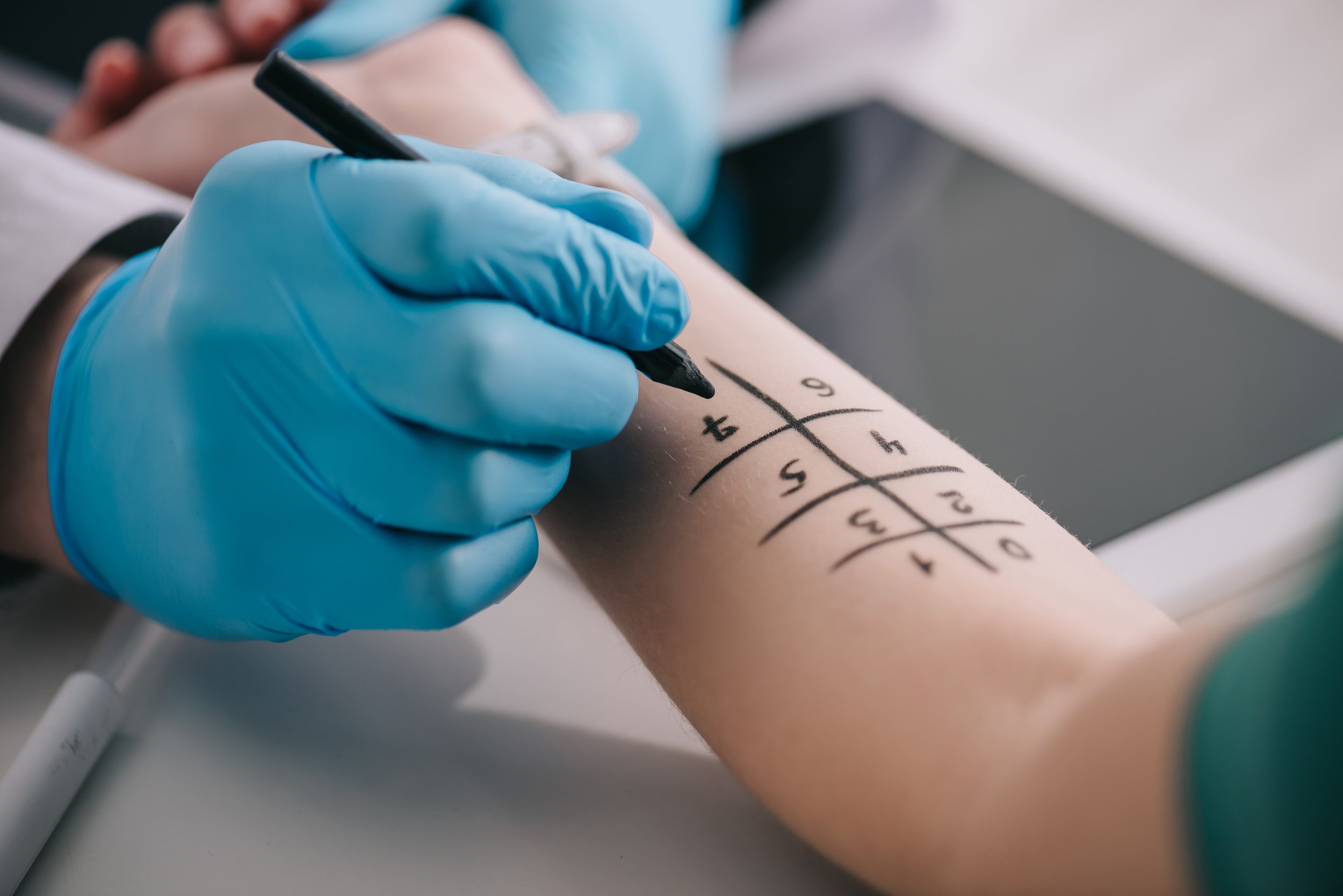
Allergy Testing & Diagnosis
Allergy testing is available for both adults and children of any age. During your first consultation, testing can be conducted, with results and a diagnosis provided soon after. Your allergist will then explain your specific allergies and recommend suitable treatments. Testing methods may include skin and blood tests, each best performed under an allergist's guidance for accurate results. These tests detect sensitivities to common allergens like pollen, dust mites, foods, and medicines. Board-certified allergists use their expertise to choose the most effective tests and interpret results within the context of your medical history, ensuring precise identification and management of your allergies.
What Is Allergy testing?
types of tests
skin testing
Allergy skin testing is the gold standard for identifying specific allergens and is conducted alongside a patient's medical history. Skin tests are performed in an allergist's office, providing fast and cost-effective results compared to blood tests. However, due to the variables and risks involved, testing must be conducted by trained practitioners.
There are two main types of skin tests: Prick or scratch test: A tiny drop of a potential allergen is pricked or scratched into the skin. Intradermal test: A small amount of the allergen is injected under the skin to detect allergies to substances like insect stings and penicillin. Steps include a medical history review, physical exam, and supervision by an allergist. Though generally safe, skin testing can sometimes cause itching and swelling, and rare serious reactions, so it must be done by a specialist.
Allergy Diagnosis
Blood testing for allergies involves a single needle prick and is unaffected by medications. While it takes longer to get results and may have a higher cost compared to skin tests, it can sometimes yield false positives. Various types of allergy blood tests exist, with some being more effective than others. The main risks include pain or bleeding at the needle site, and in rare cases, fainting.
Blood test and skin test results alone do not diagnose allergies. All test results, from either type of test, must be interpreted together with your medical history. When it comes to human allergic disease, an individual’s medical history is as important as the results of an allergy test. Medical history is the critical link between allergy test results and allergic disease itself. It tells the allergist valuable information about your health overall, your experiences with possible allergens, your symptoms at various times of the year, etc. If the results of skin and blood allergy tests are not clear or are inconsistent with the patient’s medical history, allergists rely on their training and experience along with a patient’s medical history and a physical examination—not test results—to make the final diagnosis.
